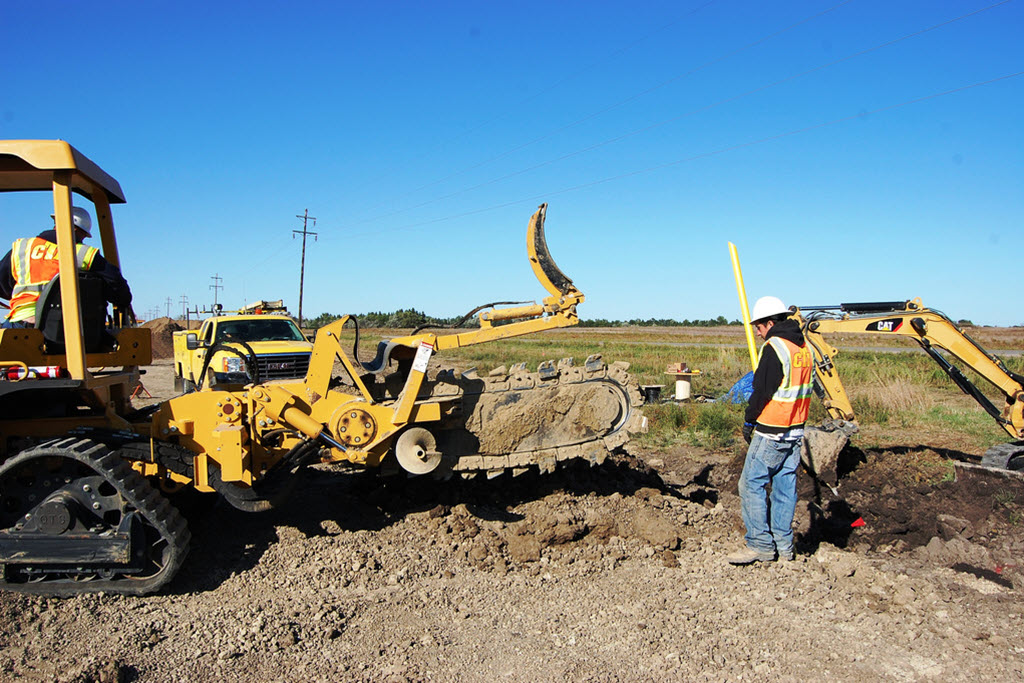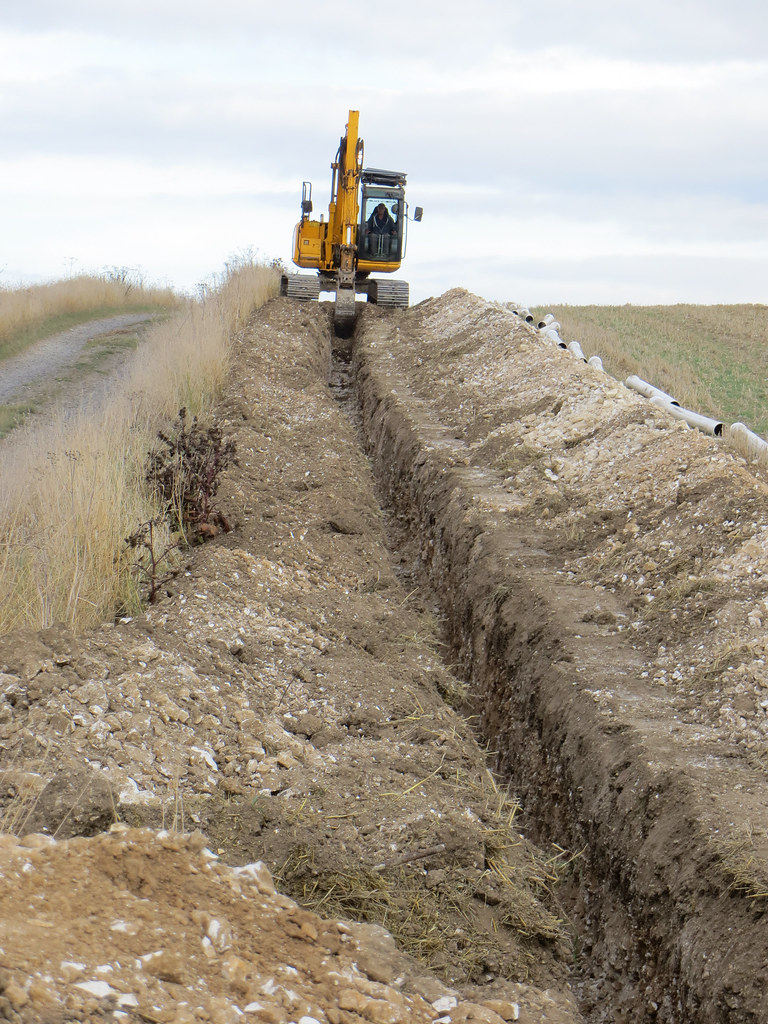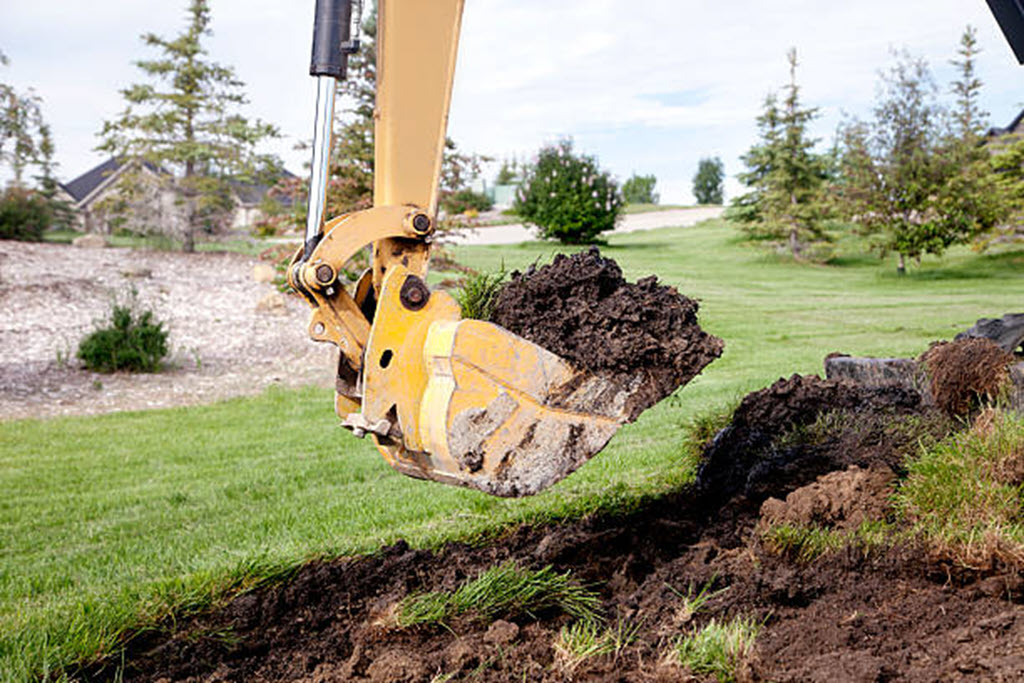Cable Trenchingsin Madison Heights MI
Cable Trenching Done Right for Secure Utility Installations
We Are Locally Owned & Operated For Over 37 Years
Contact Us Today!
We Serve Businesses In And Around The Following Cities:
About Cable Trenchings
Introduction
Commercial properties in Madison Heights, whether they’re office buildings, retail outlets, or industrial facilities, all need a variety of services to function efficiently. One such service, particularly crucial in today’s digital age, is cable trenching. The process might not be straightforward, hence the importance of localized expertise from reputable trenching contractors. Cable trenching in Madison Heights has its unique demands, but also its rewards. This guide demystifies cable trenching for anyone owning or managing a commercial property in this flourishing city. We highlight the process, benefits, applications, and how companies like D&J Contracting can help commercial entities realize and harness these gains.
The Intricacies of Cable Trenching
Cable trenching is a specialized excavation process required for laying cables in commercial spaces like office buildings, factories, retail stores, and more. The procedure demands significant knowledge and experience, hallmarks of reputable trench digging services, such as D&J Contracting. In Madison Heights, it begins with pre-trenching checks, the establishment of utility line trenching paths, and securing necessary permits. Safety measures are set, and the trench is then dug using a trench digger contractor’s tools and machinery.
In closing the trench, care is taken to ensure safely burying the cables while also preparing for future upkeep or expansion. Precision is paramount here, as overlooking any detail can lead to downtime, repair costs, and even safety hazards. Trustworthy trench digging contractors near Madison Heights, like D&J Contracting, can prevent such unfortunate events from happening.
Benefits of Cable Trenching
With cable trenching, commercial properties can benefit tremendously in several ways. First, there’s the significant improvement in connectivity and utility service efficiency. Whether it’s internet connectivity, power lines, or any other utility service delivery, a well-executed trenching job ensures consistency and reliability.
Additionally, cable trenching in Madison Heights also enhances property safety. With correctly buried cables, there’s a reduced risk of accidents that can occur due to exposed wiring. Furthermore, by employing a trenching excavation company like D&J Contracting, commercial property owners can be assured of seamless service delivery that complies with all requisite safety standards.
Real-World Applications
The benefits of cable trenching aren’t theoretical – they have real-world applications and tangible outcomes. For instance, a trench for a propane line delivers a reliable and efficient energy source for heating commercial spaces. On a larger scale, trenching and boring contractors can enable massive telecommunications infrastructure upgrades, allowing super-fast internet access – a boon for any Madison Heights business.
Case in point: if a retail outlet in Madison Heights wanted to enhance their connectivity, a trench digging service near Madison Heights, like D&J Contracting, could lay down the necessary cabling. This could lead to faster transactions for the clients and improved communications within the store. Indeed, many businesses in the city have transformed their operations for the better, just because they appreciated the opportunities that cable trenching brought and took decisive action.
Navigating the Cable Trenching Process
While the process can seem daunting at first glance, having a competent trenching contractor by your side can make it a hassle-free experience. Professional contractors, like D&J Contracting, guide you through the process, providing transparency and clarity at each stage. They help chart the trenching for utilities path, get the necessary permits, handle the excavation, and later, the backfilling.
If your commercial property houses complex operations such as chemical processing or heavy machinery, the contractor ensures the trenching doesn’t disrupt your business operations. They do this with meticulous planning, seamless execution, and strict adherence to safety protocols. Hence, a well-chosen contractor isn’t just another service provider; they’re your partner in progress.
Taking the Leap
As demonstrated, cable trenching is much more than just digging trenches and laying cables. It’s about enhancing the utility services’ reliability, preparing your business for the future, and ensuring the safety of your operations. While there are many trenching contractors near Madison Heights, D&J Contracting stands out for its unmatched commitment to quality, safety, and customer satisfaction.
Integrating cable trenching into your overall property management strategy can be transformative. So if you’re contemplating this step, reach out to a reliable trench digging service, such as D&J Contracting. They’ll not only provide the trenching services, but partner with you in your journey towards a safer, more efficient, and more prosperous business future in Madison Heights.
Cable Trenchings Gallery


Call Us Today to receive your Free Quote for
Cable Trenching in Madison Heights
Serving: Madison Heights, Michigan

About Madison Heights, Michigan
Originally part of Royal Oak Township, Madison Heights incorporated as a city by popular vote on January 17, 1955, and chartered on December 6 of that same year, becoming the tenth city government in southern Oakland County. At that time, the 7.2 square miles (18.6 km) city was one of the largest suburban communities in the Metro Detroit area. The first city hall was at 26305 John R Road, the former township offices. On April 5, 1963, a new municipal building was dedicated which is on the present location at 300 West Thirteen Mile Road. The city lies in the Interstate 696 (I-696) and I-75 corridor and is served by two primary school districts, Lamphere and Madison, as well as a full-service municipal government.
According to the United States Census Bureau, the city has a total area of 7.09 square miles (18.36 km), all land.
Although 91% of the buildings in Madison Heights are single-family homes or condominiums (approximately 9,800 residential property owners), 60% of the tax base is fueled by light industrial or commercial property. The city has 15 voting precincts, totaling more than 21,000 registered voters.
Madison Heights shares borders with Troy to the north, Royal Oak to the west, Hazel Park to the south, and Warren to the east. The eastern border of Madison Heights (Dequindre Road) is also the border between Oakland and Macomb counties.
There are more than 112 miles (180 km) of road within Madison Heights, of which the city maintains 105 miles (169 km), 95 miles (153 km) for snow removal, sweeping, and patching. Interstate 75 passes north to south on the west side of the city, and Interstate 696 is the major feature of its southern border. The junction of these two highways is shared with Royal Oak and Hazel Park on the southwest corner of Madison Heights.
| Census | Pop. | Note | %± |
|---|---|---|---|
| 1960 | 33,343 | — | |
| 1970 | 38,599 | 15.8% | |
| 1980 | 35,375 | −8.4% | |
| 1990 | 31,296 | −11.5% | |
| 2000 | 31,101 | −0.6% | |
| 2010 | 29,694 | −4.5% | |
| 2020 | 28,468 | −4.1% | |
| U.S. Decennial Census | |||
As of the 2020 United States census of 2020, there were 28,468 people and 13,487 households in the city. The population per square mile is 4,017.5.
The racial makeup of the city was 80.4% White, 7.8% African American, 0.2% Native American, 7.2% Asian, 0.1% Pacific Islander, 3.6% from two or more races. Hispanic or Latino residents of any race were 2.0% of the population.
There were 13,487 households, of which 14.7% spoke a language other than English at home. People under 65 years of age with a disability accounted for 11.1% of the city’s population, and 11.7% of the city’s population was living below the federal poverty line. Households without a broadband internet subscriptions made up 11.9% of the community.
16% of residents were under the age of 18; and 16.3% were 65 years of age or older. The gender makeup of the city was 49.4% male and 50.6% female.
As of the census of 2010, there were 29,694 people, 12,712 households, and 7,543 families residing in the city. The population density was 4,188.2 inhabitants per square mile (1,617.1/km). There were 13,685 housing units at an average density of 1,930.2 per square mile (745.3/km). The racial makeup of the city was 83.9% White, 6.4% African American, 0.5% Native American, 5.8% Asian, 0.1% Pacific Islander, 0.7% from other races, and 2.7% from two or more races. Hispanic or Latino residents of any race were 2.5% of the population.
There were 12,712 households, of which 27.5% had children under the age of 18 living with them, 41.0% were married couples living together, 12.9% had a female householder with no husband present, 5.4% had a male householder with no wife present, and 40.7% were non-families. 34.1% of all households were made up of individuals, and 11.8% had someone living alone who was 65 years of age or older. The average household size was 2.32 and the average family size was 3.02.
The median age in the city was 38.3 years. 20.4% of residents were under the age of 18; 8.7% were between the ages of 18 and 24; 30.4% were from 25 to 44; 26.6% were from 45 to 64; and 13.9% were 65 years of age or older. The gender makeup of the city was 49.1% male and 50.9% female.
As of the 2000 United States census, there were 31,101 people, 13,299 households, and 8,005 families residing in the city. The population density was 4,341.3 inhabitants per square mile (1,676.2/km). There were 13,623 housing units at an average density of 1,901.6 per square mile (734.2/km). The city’s racial makeup was 89.60% White, 1.82% African American, 0.44% Native American, 4.97% Asian, 0.03% Pacific Islander, 0.46% from other races, and 2.68% from two or more races. Hispanic or Latino residents of any race were 1.61% of the population.
There were 13,299 households, of which 26.9% had children under the age of 18 living with them, 45.2% were married couples living together, 10.5% had a female householder with no husband present, and 39.8% were non-families. 33.8% of all households were made up of individuals, and 12.3% had someone living alone who was 65 years of age or older. The average household size was 2.33 and the average family size was 3.02.
In the city, 22.1% of the population was under the age of 18, 8.1% was from 18 to 24, 35.4% from 25 to 44, 20.2% from 45 to 64, and 14.2% was 65 years of age or older. The median age was 36 years. For every 100 females, there were 95.8 males. For every 100 females age 18 and over, there were 92.9 males.
The city’s median household income was $42,326, and the median family income was $51,364. Males had a median income of $41,478 versus $29,345 for females. The city’s per capita income was $21,429. About 7.0% of families and 8.9% of the population were below the poverty line, including 10.8% of those under age 18 and 13.0% of those age 65 or over.
In 2008, 1.9% of the Madison Heights population were of Vietnamese descent. 168 Asian Mart, a 38,000-square-foot (3,500 m) supermarket, is the largest Asian supermarket in southeast Michigan, and one of the largest in the state. The Chinese Cultural Center is in Madison Heights.
The mayor of Madison Heights is Roslyn Grafstein, who was appointed as Mayor in August 2020 to fill a vacant seat.
Madison District Public Schools and Lamphere Public Schools have public schools serving Madison Heights.
Bishop Foley Catholic High School is a private school.
Four Corners Montessori Academy is a public charter school.
Call Us Today to receive your Free Quote for
Cable Trenching in Madison Heights
Related Services in Madison Heights, Michigan
We Serve Businesses In The Following Zip Codes:
48007, 48015, 48021, 48026, 48035, 48036, 48038, 48042, 48043, 48044, 48045, 48046, 48047, 48048, 48050, 48051, 48066, 48071, 48080, 48081, 48082, 48083, 48084, 48085, 48088, 48089, 48090, 48091, 48092, 48093, 48098, 48099, 48225, 48230, 48236, 48310, 48311, 48312, 48313, 48314, 48315, 48316, 48317, 48318, 48397